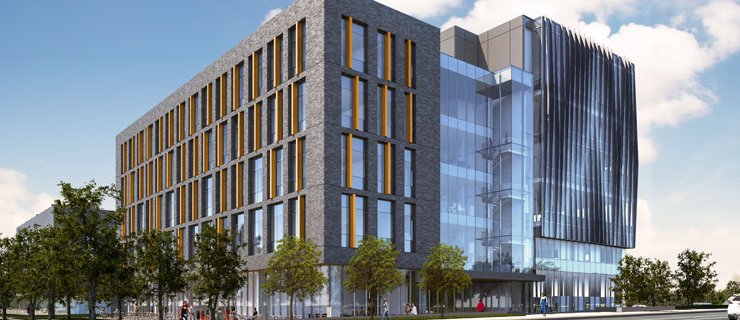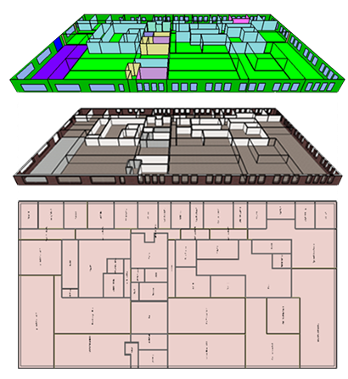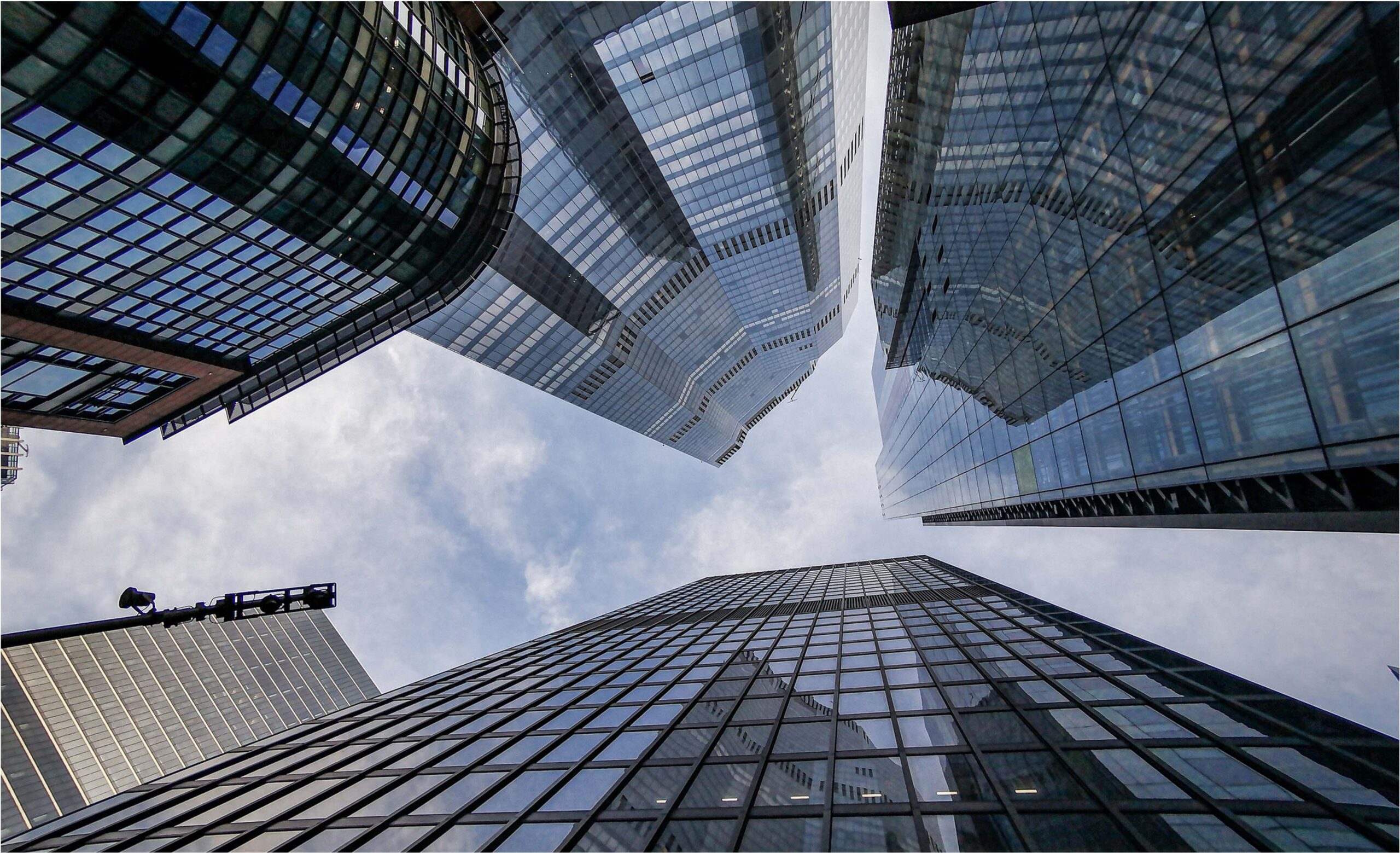Audit a Graduate Course
in Building Science

Schedule: Wednesdays 9-10 a.m. & Thursdays 2-4 p.m.
Method of delivery: In-person
Level of engagement: Auditors are encouraged to take part in the course assessments but auditors will only be able to work with other auditors on the project and labs, not other registered students.
Contact information: marianne.touchie@utoronto.ca
Studies in Building Science - CIV575H1
This course examines the basic principles governing the control of heat, moisture and air movement in buildings and presents the fundamentals of building enclosure design with a focus on how to make buildings more comfortable and energy efficient. With this background, students will research a building science topic that interests them and create a video showcasing their project. Lectures for this course will be jointly offered with those of CIV375H1.
What are the fundamental elements of building science?
- Determine heat transfer pathways
- Identify moisture transport mechanisms
- Evaluate air leakage pathways
- Determine the impact of solar radiation

Schedule: Mondays 9 a.m. - 12 p.m. (noon)
Method of delivery: In-person
Level of engagement: Auditors are encouraged to discuss their level of engagement in course assessments with the instructor directly at the beginning of the course.
Contact information: jeffrey.siegel@utoronto.ca
Indoor Air Quality - CIV1320H
Contaminants in indoor air have enormous impact on human health, productivity, building energy use and sustainability. This course focuses on important contaminants, fundamental tools and methodologies to measure and model the indoor environment, and on engineering solutions to improve indoor air quality. The course covers a rationale and motivation for the investigation of indoor contaminants, important contaminants and sources, the use of mass balances to assess indoor concentrations, fundamental transport and transformation processes that occur indoors, indoor exposure assessment, and methodologies to assess costs and benefits for technologies and techniques to improve indoor air. The course explicitly links the air inside of buildings to building materials, energy use, outdoor air quality, and human health.
How can we achieve healthy indoor air?
- Explore IAQ impacts
- Identify important contaminants
- Use mass balances
- Control indoor pollutants
Building Energy Performance Simulation - CIV501H1
Building performance simulation (BPS) is the process of imitating/predicting aspects of building performance with computational building models. The models draw heavily upon the disciplines of heat and mass transfer, thermodynamics, fluid mechanics, light transmission, and occupant behaviour. BPS allows improving the design and operation of buildings through quantitative analyses. This course will provide students with theoretical knowledge and practical skills to effectively apply BPS tools in design and analysis contexts focusing on building heating and cooling loads, building energy systems, and whole-building energy performance.
How can we effectively use simulation tools to analyze building energy performance?
- Explore heat and mass transfer models
- Understand model inputs
- Appreciate simulation uncertainty
- Develop practical modelling skills

Schedule: Thursdays 3-5 p.m. & Fridays 1-3 p.m.
Method of delivery: In-person
Level of engagement: Auditors are encouraged to take part in the course assessments but auditors will only be able to work with other auditors on the project and labs, not other registered students.
Contact information: sjae.lee@utoronto.ca
Sustainable Buildings - CIV576H1
Building systems including the thermal envelope, heating and cooling systems, as well as water and lighting systems are examined with a view to reducing the net energy consumed within the building. Life-cycle economic and assessment methods are applied to the evaluation of various design options including considerations of embodied energy and carbon sequestration. Green building strategies including natural ventilation, passive solar, photovoltaics, solar water heaters, green roofs and geothermal energy piles are introduced. Following the application of these methods, students are introduced to efficient designs including LEED designs that lessen the impact of buildings on the environment. Exemplary building designs will be presented and analyzed.
What makes a sustainable building?
- Design for low energy
- Minimize harmful contaminants
- Consider building context
- Design for the future

Recommended Prerequisite: CIV575H1 or equivalent.
Schedule: Tuesdays 9-11 a.m. & Fridays 11 a.m. - 12 p.m. (noon)
Method of delivery: In-person
Level of engagement: Auditors are encouraged to discuss their level of engagement in course assessments with the instructor directly at the beginning of the course.
Contact information: jeffrey.siegel@utoronto.ca
Design of Building Enclosures - CIV578H1
This course will develop in students a thorough understanding of the practical and technical factors that should be considered for the effective design, construction, restoration, and retrofit of building enclosures. In particular, topics related to the control of rain penetration, air movement, thermal transfer, and interstitial condensation are studied in detail. The course will focus on identifying the causes of deterioration and how to develop details/strategies that provide effective, energy/carbon efficient, and durable solutions while being mindful of economic and logistical impacts. The latest materials, methods, and technologies currently available for the construction, restoration, and retrofit of building enclosures will be discussed.
How can we create effective building enclosure design?
- Identify support, control, and finish elements and provide critical barrier continuity between control layers
- Manage thermal bridging
- Identify and manage deterioration mechanisms to promote durability
- Accommodate future maintenance or repairs

Recommended Prerequisite: CIV575H1 or equivalent.
Schedule: Wednesdays 6-9 p.m. & Thursdays 1-3 p.m.
Method of delivery: In-person
Level of engagement: Auditors are encouraged to attend all lectures and tutorials.
Contact information: marianne.touchie@utoronto.ca
Case Studies in Building Science - CIV1282H
By means of a case study approach, a number of problems common to high-rise, industrial, and residential buildings will be investigated. The contribution of faults in design, material selection, or workmanship to the failures in building systems will be established. Students will gain hands-on experience diagnosing building performance issues in a variety of building typologies and designing mitigation plans to improve performance.
How can we link Building Science theory to real-world problems?
- Analyze building performance issues in real buildings.
- Create holistic solutions considering climate change and energy transition.
- Provide practice in forensic engineering analysis.
- Strengthen preparation for contemporary building industry challenges.

Recommended Prerequisite: CIV575H1 or equivalent.
Schedule: Mondays 2 - 5 p.m.
Method of delivery: In-person
Level of engagement: Auditors are encouraged to attend all lectures and tutorials.
Contact information: Alex.Lukachko@daniels.utoronto.ca
Recommended Prerequisite: CIV575 or CIV576 (not required)
Schedule: TBD
Method of delivery: In-person
Level of engagement: Auditors are encouraged to take to take part in the course assessments but auditors will only be able to work with other auditors on the project and labs, not other registered students.
Contact information: marianne.touchie@utoronto.ca
Building Performance Assessment - CIV1240H
It is well known that significant performance gaps exist between the building design stage and building operation. To ensure buildings achieve predicted performance in terms of resource use and occupant comfort, health and wellbeing, post-occupancy performance assessment is required. This course begins by introducing students to common building performance issues, the existing frameworks and rating systems designed to characterize these issues as well as the three performance gap types: prediction, expectation and outcomes. Next, the relationship between occupants, the building envelope and mechanical systems is explored, including the influence of each of these elements on indoor environmental quality and resource use. Through a field study in an occupied building, students will gain experience with the metrics, measurement methods and data analysis techniques used in the holistic assessment of building performance.
Through development of a hypothetical field study, students will gain experience with the metrics, measurement methods and data analysis techniques used in the holistic assessment of building performance. Lab sessions complement the field study by providing students with hands-on experience with various sensors and measurement instruments.
The cost to audit a CivMin graduate course in Fall 2025, Winter 2026, & Summer 2026 will be $1,275.
Parking on campus: https://transportation.utoronto.ca/parking-map-rates/

Interested in pursuing a full Master's degree?
Discover how a professional degree program in Civil & Mineral Engineering can open up a world of opportunities and supercharge your career!



